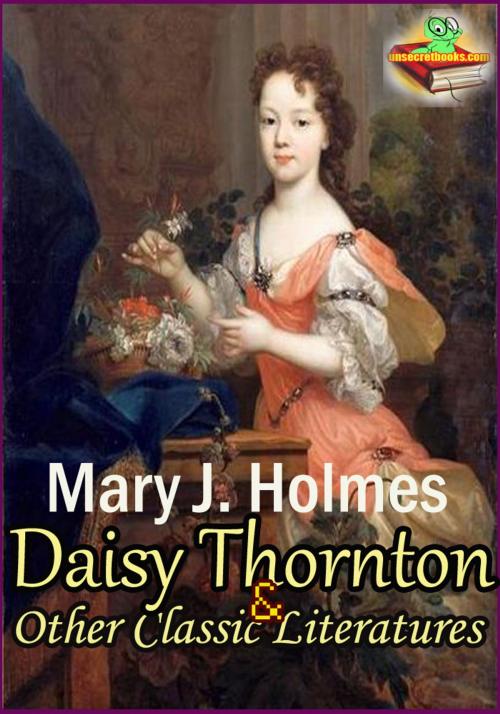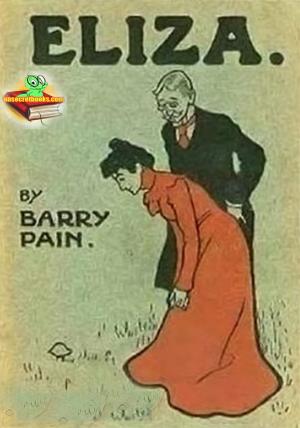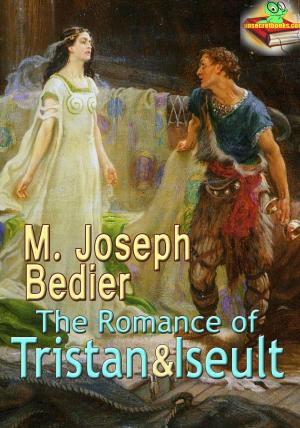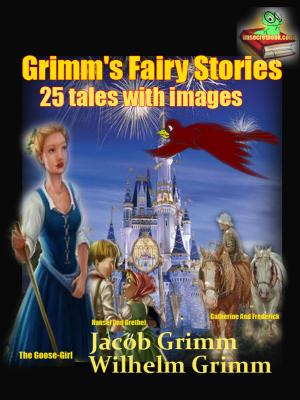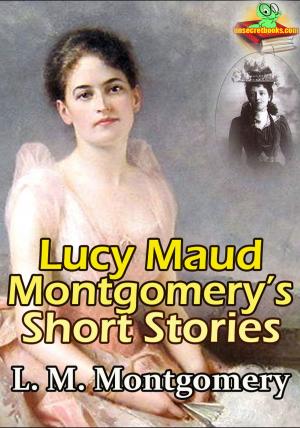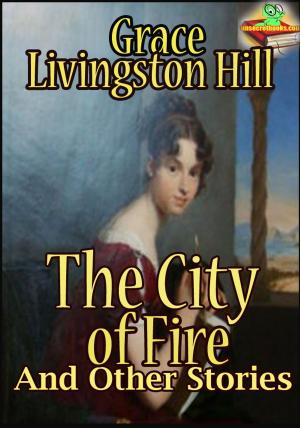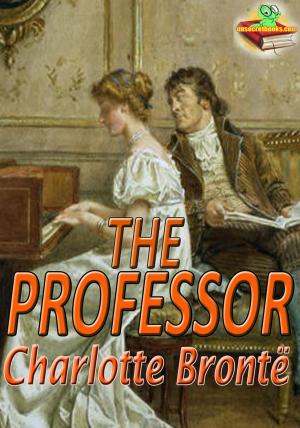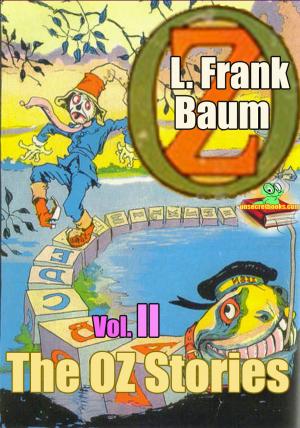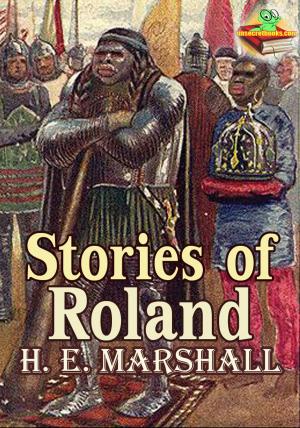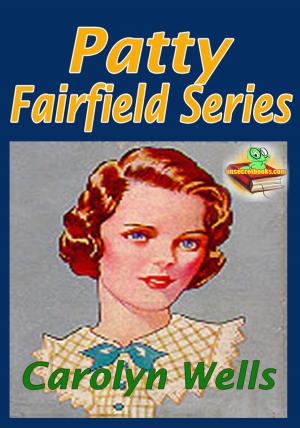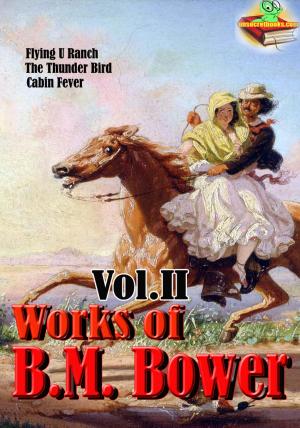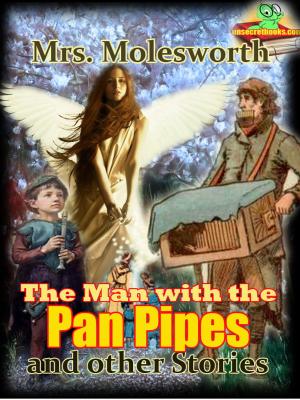Daisy Thornton: Tracy Park: Ethelyn's Mistake: Homestead on the Hillside
( 4 Classic Literatures )
Fiction & Literature, Literary, Romance, Contemporary| Author: | Mary J. Holmes | ISBN: | 1230000103951 |
| Publisher: | Unsecretbooks.com | Publication: | February 1, 2013 |
| Imprint: | Language: | English |
| Author: | Mary J. Holmes |
| ISBN: | 1230000103951 |
| Publisher: | Unsecretbooks.com |
| Publication: | February 1, 2013 |
| Imprint: | |
| Language: | English |
"Mrs. Holmes is a peculiarly pleasant and fascinating writer. Her books are always entertaining, and she has the rare faculty of enlisting the sympathy and affections of her readers, and of holding their attention to her pages with deep and absorbing interest."
G.W. Dillingham Co., Publishers, NEW YORK.
Mary Jane Holmes was a bestselling and prolific American author who published 39 popular novels, as well as short stories. Her first novel sold 250,000 copies; and she had total sales of 2 million books in her lifetime, second only to Harriet Beecher Stowe.
Portraying domestic life in small town and rural settings, she examined gender relationships, as well as those of class and race. She also dealt with slavery and the American Civil War, with a strong sense of moral justice. Since the late 20th century, she has received fresh recognition and reappraisal, although her popular work was excluded from most 19th-century literary histories compiled by men.
This book is contained 4 Classic Literatures.
“Daisy Thornton”
Daisy McDonald is her name, and she lives in Indianapolis, where her father is a poor lawyer, and as I have heard, a scheming, unprincipled man. Guy met her last winter in Chicago, and fell in love at once, and made two or three journeys West on "important business," he said, and then, sometime in May, told me he was going to bring me a sister, the sweetest little creature, with beautiful blue eyes and wonderful hair. I was sure to love her, he said, and when I suggested that she was very young, he replied that her youth was in her favor, as we could more easily mould her to the Thornton pattern. Little he knows about girls; but then he was perfectly infatuated and blind to everything but Daisy's eyes, and hair, and voice, which is so sweet and winning that it will speak for her at once. Then she is so dainty and refined, he said, and he asked me to see to the furnishing of the rooms on the west side of the house, the two which communicate with his own private library, where he spends a great deal of time with his books and writing. The room adjoining this was to be Daisy's boudoir or parlor, where she could sit when he was occupied and she wished to be near him. This was to be fitted up in blue, as she had expressed a wish to that effect, and he said no expense must be spared to make it as pretty and attractive as possible. So the walls were frescoed and tinted, and I spent two entire days in New York hunting for a carpet of the desirable shade, which should be right both in texture and design.
“Tracy Park”
Mr. Frank Tracy, who, since his election to the State Legislature for two successive terms, had done nothing except to attend political meetings and make speeches on all public occasions, had an office in town, where he usually spent his mornings, smoking, reading the papers and talking to Mr. Colvin, his business agent and lawyer, for, though born in one of the humblest of New England houses, where the slanting roof almost touched the ground in the rear, and he could scarcely stand upright in the chamber where he slept, Mr. Frank Tracy was a great man now, and as he dashed along the turnpike behind his blooded bays, with his driver beside him, people looked admiringly after him, and pointed him out to strangers as the Hon. Mr. Tracy, of Tracy Park, one of the finest places in the county. It is true it did not belong to him, but he had lived there so long that he had come to look upon it as his, while his neighbors, too, seemed to have forgotten that there was across the ocean a Mr. Arthur Tracy, who might at any time come home to claim his own, and demand an account of his brother's stewardship. And it was this very Arthur Tracy, whose telegram announcing his return from Europe was read by his brother with mingled feelings of surprise and consternation.
“Ethelyn's Mistake”
The people who lived there, the Mumfords, and the Beechers, and the Grangers, and the Thorns, did not strictly belong to the working class. They held stocks in railroads, and mortgages on farms, and so could afford to sleep after the shrill whistle from the manufactory had wakened the echoes of the distant hills and sounded across the waters of Pordunk Pond. Only one dwelling here showed signs of life, and that the large square building, shaded in front with elms and ornamented at the side with a luxuriant queen of the prairie, whose blossoms were turning their blushing faces to the rising sun. This was the Bigelow house, the joint property of Mrs. Dr. Van Buren, née Sophia Bigelow, who lived in Boston, and her sister, Miss Barbara Bigelow, the quaintest and kindest-hearted woman who ever bore the sobriquet of an old maid, and was aunt to everybody. She was awake long before the whistle sounded across the river and along the meadow lands, where some of the workmen lived, and just as the robin, whose nest for four summers had been under the eaves where neither boy nor cat could reach it, brought the first worm to its clamorous young, she pushed the fringed curtain from her open window, and with her broad frilled cap still on her head, stood for a moment looking out upon the morning as it crept up the eastern sky. "She will have a nice day for her wedding. May her future life be as fair," Aunt Barbara whispered softly, then kneeling before the window with her head bowed upon the sill, she prayed earnestly for God's blessing on the bridal to take place that night beneath her roof, and upon the young girl who had been both a care and a comfort since the Christmas morning eighteen years before, when her half-sister Julia had come home to die, bringing with her the little Ethelyn, then but two years old.
“Homestead on the Hillside”
It stood at some distance from the road, and on the bright green lawn in front were many majestic forest trees, on which had fallen the lights and shadows of more than a century; and under whose widespreading branches oft, in the olden time, the Indian warrior had paused from the chase until the noonday heat was passed. Leading from the street to the house was a wide, graveled walk bordered with box, and peeping out from the wilderness of vines and climbing roses were the white walls of the huge building, which was surrounded on all sides by a double piazza. Many and hallowed were the associations connected with that old homestead. On the curiously-carved seats beneath the tall shade trees were cut the names of some who there had lived, and loved, and passed away. Through the little gate at the foot of the garden and just across the brooklet, whose clear waters leaped and laughed in the glad sunshine, and then went dancing away in the woodland below, was a quiet spot, where gracefully the willow tree was bending, where the wild sweetbrier was blooming, and where, too, lay sleeping those who once gathered round the hearthstone and basked in the sunlight which ever seemed resting upon the Homestead on the Hillside.
"Mrs. Holmes is a peculiarly pleasant and fascinating writer. Her books are always entertaining, and she has the rare faculty of enlisting the sympathy and affections of her readers, and of holding their attention to her pages with deep and absorbing interest."
G.W. Dillingham Co., Publishers, NEW YORK.
Mary Jane Holmes was a bestselling and prolific American author who published 39 popular novels, as well as short stories. Her first novel sold 250,000 copies; and she had total sales of 2 million books in her lifetime, second only to Harriet Beecher Stowe.
Portraying domestic life in small town and rural settings, she examined gender relationships, as well as those of class and race. She also dealt with slavery and the American Civil War, with a strong sense of moral justice. Since the late 20th century, she has received fresh recognition and reappraisal, although her popular work was excluded from most 19th-century literary histories compiled by men.
This book is contained 4 Classic Literatures.
“Daisy Thornton”
Daisy McDonald is her name, and she lives in Indianapolis, where her father is a poor lawyer, and as I have heard, a scheming, unprincipled man. Guy met her last winter in Chicago, and fell in love at once, and made two or three journeys West on "important business," he said, and then, sometime in May, told me he was going to bring me a sister, the sweetest little creature, with beautiful blue eyes and wonderful hair. I was sure to love her, he said, and when I suggested that she was very young, he replied that her youth was in her favor, as we could more easily mould her to the Thornton pattern. Little he knows about girls; but then he was perfectly infatuated and blind to everything but Daisy's eyes, and hair, and voice, which is so sweet and winning that it will speak for her at once. Then she is so dainty and refined, he said, and he asked me to see to the furnishing of the rooms on the west side of the house, the two which communicate with his own private library, where he spends a great deal of time with his books and writing. The room adjoining this was to be Daisy's boudoir or parlor, where she could sit when he was occupied and she wished to be near him. This was to be fitted up in blue, as she had expressed a wish to that effect, and he said no expense must be spared to make it as pretty and attractive as possible. So the walls were frescoed and tinted, and I spent two entire days in New York hunting for a carpet of the desirable shade, which should be right both in texture and design.
“Tracy Park”
Mr. Frank Tracy, who, since his election to the State Legislature for two successive terms, had done nothing except to attend political meetings and make speeches on all public occasions, had an office in town, where he usually spent his mornings, smoking, reading the papers and talking to Mr. Colvin, his business agent and lawyer, for, though born in one of the humblest of New England houses, where the slanting roof almost touched the ground in the rear, and he could scarcely stand upright in the chamber where he slept, Mr. Frank Tracy was a great man now, and as he dashed along the turnpike behind his blooded bays, with his driver beside him, people looked admiringly after him, and pointed him out to strangers as the Hon. Mr. Tracy, of Tracy Park, one of the finest places in the county. It is true it did not belong to him, but he had lived there so long that he had come to look upon it as his, while his neighbors, too, seemed to have forgotten that there was across the ocean a Mr. Arthur Tracy, who might at any time come home to claim his own, and demand an account of his brother's stewardship. And it was this very Arthur Tracy, whose telegram announcing his return from Europe was read by his brother with mingled feelings of surprise and consternation.
“Ethelyn's Mistake”
The people who lived there, the Mumfords, and the Beechers, and the Grangers, and the Thorns, did not strictly belong to the working class. They held stocks in railroads, and mortgages on farms, and so could afford to sleep after the shrill whistle from the manufactory had wakened the echoes of the distant hills and sounded across the waters of Pordunk Pond. Only one dwelling here showed signs of life, and that the large square building, shaded in front with elms and ornamented at the side with a luxuriant queen of the prairie, whose blossoms were turning their blushing faces to the rising sun. This was the Bigelow house, the joint property of Mrs. Dr. Van Buren, née Sophia Bigelow, who lived in Boston, and her sister, Miss Barbara Bigelow, the quaintest and kindest-hearted woman who ever bore the sobriquet of an old maid, and was aunt to everybody. She was awake long before the whistle sounded across the river and along the meadow lands, where some of the workmen lived, and just as the robin, whose nest for four summers had been under the eaves where neither boy nor cat could reach it, brought the first worm to its clamorous young, she pushed the fringed curtain from her open window, and with her broad frilled cap still on her head, stood for a moment looking out upon the morning as it crept up the eastern sky. "She will have a nice day for her wedding. May her future life be as fair," Aunt Barbara whispered softly, then kneeling before the window with her head bowed upon the sill, she prayed earnestly for God's blessing on the bridal to take place that night beneath her roof, and upon the young girl who had been both a care and a comfort since the Christmas morning eighteen years before, when her half-sister Julia had come home to die, bringing with her the little Ethelyn, then but two years old.
“Homestead on the Hillside”
It stood at some distance from the road, and on the bright green lawn in front were many majestic forest trees, on which had fallen the lights and shadows of more than a century; and under whose widespreading branches oft, in the olden time, the Indian warrior had paused from the chase until the noonday heat was passed. Leading from the street to the house was a wide, graveled walk bordered with box, and peeping out from the wilderness of vines and climbing roses were the white walls of the huge building, which was surrounded on all sides by a double piazza. Many and hallowed were the associations connected with that old homestead. On the curiously-carved seats beneath the tall shade trees were cut the names of some who there had lived, and loved, and passed away. Through the little gate at the foot of the garden and just across the brooklet, whose clear waters leaped and laughed in the glad sunshine, and then went dancing away in the woodland below, was a quiet spot, where gracefully the willow tree was bending, where the wild sweetbrier was blooming, and where, too, lay sleeping those who once gathered round the hearthstone and basked in the sunlight which ever seemed resting upon the Homestead on the Hillside.
